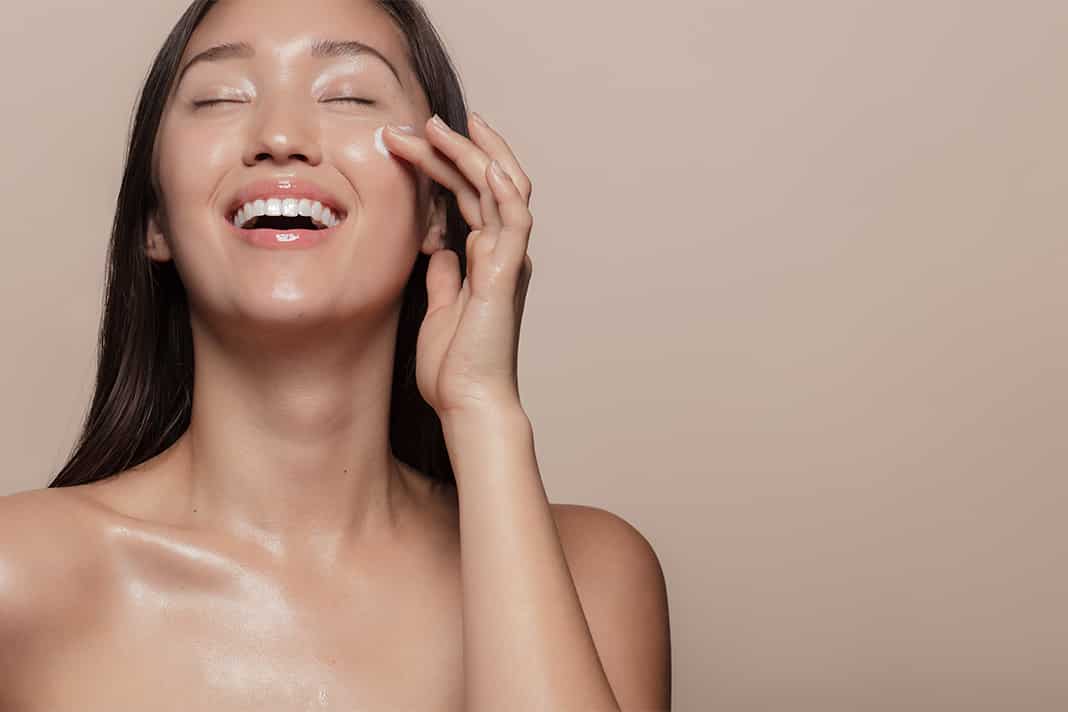Need to up your skin game? Our skincare experts at Skinfluencer Chelsea reveal the top five ingredients to look out for
It would seem that every week a scientific-sounding hero skincare product is launched, which promises to give us selfie-perfect skin that will need #nofilter. But in reality, what are the ingredients you should scout for when choosing skincare? We spoke to the experts at Skinfluencer to find out what is always en vogue for great skin.
5 of the Best Skincare Ingredients
Vitamin C: Best for skin brightening
This is a real over-achiever when it comes to skincare, allowing you to minimise your skincare routine whilst maximising your results. Vitamin C is hardworking because it continuously eats up the free radicals that originate from environmental factors, including pollution and cigarette smoke, which accelerates the ageing process.
Vitamin C is not only a line of defence against these factors — it’s also an exceptional skin brightener. However, for best results, choose pump bottles that do not expose the entire product to the air every time you use it, otherwise it will oxidise and become ineffective.
Retinol: Best for anti-aging
One of the hardest skincare ingredients to navigate, Retinol comes in various guises, not all of which are created equal. Vitamin A is the first generation of Retinol and is available via prescription only. For most people, retinoids are an effective solution. In higher concentrations, these are typically found in medical grade skincare. Retinoic Acid is the strongest (prescription-level) retinoid, and is actually naturally occurring in the body, making this the only retinol that is bio available.
All other retinoids need to be converted by our skin cells once they hit our skin. Not all retinoids are prescription strength, but they should all be used according to professional guidance. Whatever strength you choose, it is advisable to introduce it to your skincare routine in a low percentage and build up the frequency of use slowly if you want to maximise your skin health and minimise skin irritation.
 Niacinamide: Best for acne, dehydration, pigmentation
Niacinamide: Best for acne, dehydration, pigmentation
The new kid on the skincare block, niacinamide is a potent vitamin and antioxidant that promotes the repair and protection of your skin. Known for its soothing and calming properties, this form of vitamin B3 is found in water-based serums. Aside from boosting hydration to fading hyper-pigmentation, it can also protect skin from environmental damage, help the skin to produce more collagen and hyaluronic acid, plus reduce signs of ageing, diminish enlarged pores and help with skin discolouration. Experts say regular use also leads to balanced sebum and oil production, which in turn helps prevent breakouts.
BHA/Salicylic Acid: Best for inflammation and acne
In skincare, BHA is mainly used to fight acne because it can penetrate the skin to offer deep pore exfoliation as well as acting on the skin’s surface. BHA is oil-soluble and great at clearing pores of sebum and dirt without manual exfoliation. It is also effective at preventing future breakouts by neutralising bacteria within the pores before it has the chance to develop into spots. Other benefits include improvements to skin thickness, barrier function and collagen production.
AHA: Best for exfoliating
AHA, or alpha hydroxy acids, work primarily by dissolving the bonds between skin cells to allow the removal of dead cells, subsequently revealing a smoother skin surface. Low concentrations (from around 4%) are usually gentle enough for regular at-home use, whilst chemical peels utilise concentrations of up to 70% under the supervision of a medical professional. They act on the surface cells, so they can reduce fine lines, dark spots and acne scars.
Glycolic acid has the smallest molecule size, so is highly effective at penetrating the skin. It can be used to treat oily and acne-prone skin, as it helps rid skin of the dead cells that cause blocked pores and trapped bacteria, which cause breakouts. A word to the wise: AHAs increase photosensitivity, so make sure to wear a sunscreen daily.
Like this? Check out how to prevent mask-ne

 Niacinamide: Best for acne, dehydration, pigmentation
Niacinamide: Best for acne, dehydration, pigmentation





